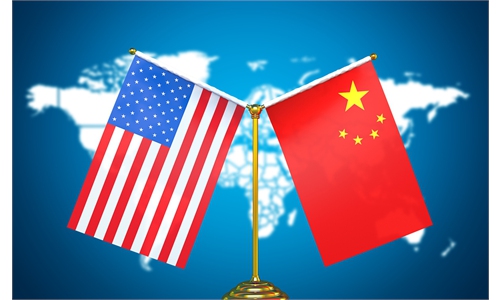
Photo:VCG
From Washington's ban on US investment in certain sensitive technologies in China, to a US government directive that halted a federal pension fund's plan to invest in Chinese stocks, media reports about internal forces in the US attempting to force a "decoupling" of financial investment between China and the US surface from time to time.Despite the negative impact on investors and financial markets on both sides, the endogenous forces behind the high-quality development of the Chinese financial market remain intact.
The $771 billion Federal Retirement Thrift Investment Board (FRTIB) said on Wednesday that it would change the benchmark index followed by its international fund, excluding Chinese mainland- and Hong Kong-listed stocks on the recommendation of its adviser, which cited rising tensions between the world's two largest economies, the Financial Times reported.
The FRTIB's move is an example of foreign capital being pulled out of China in a trend that Washington is increasingly inclined to follow to curb US investment in China on the basis of so-called national security and amid concerns over mounting geopolitical risks.
While geopolitical risks do exist and China's financial sector does face challenges in the short term, the general direction of China's financial development has never changed. Any decision to pull out of the Chinese market without understanding the market development logic can lead investors to miss opportunities.
In recent years, the expansion and development of China's financial market has been mainly driven by endogenous forces, such as economic growth, financial system reforms, financial innovation, market opening-up and financial supervision.
For instance, in order to support the needs of economic growth, China's financial market continues to expand in terms of size and services. Figures released by the central bank showed that China's financial institutions saw their combined assets increase 10.3 percent year-on-year to 449.21 trillion yuan ($62.58 trillion) as of the end of the second quarter of 2023, a solid manifestation of the vigorous development of China's financial market and growing strength of its financial institutions.
Meanwhile, reforms of financial systems, including market-driven interest rates, the strengthening of financial supervision and deepening capital market reform have improved the efficiency and competitiveness of the nation's financial market, in addition to the emergence of new financial products and services to meet diversified market needs.
It is because of the dynamics of these endogenous forces that China's expanding financial markets have attracted global investors including US pension funds in recent years.
As China relaxed access to its financial markets, a number of American financial institutions, including BlackRock, Citigroup, Goldman Sachs, JPMorgan and Morgan Stanley, among others, obtained permission for operating or expanding their businesses in China through new policies.
Now due to the geopolitical tensions between the US and China, US investors must withdraw their investments, either due to the strategic requirements of the US government or because of pessimism toward the future of the Chinese market amid the US strategic adjustment. This is a regrettable development. It generates negative shocks to the Chinese market, and it also means that investor decisions have been disrupted by political factors.
Nevertheless, geopolitics won't change the fundamentals of China's financial markets as the endogenous forces behind its past expansion haven't changed. Some of the current market confusion is because China's capital markets are developing rapidly, and regulators are trying to set up an appropriate regulatory framework to adapt to the development. But the ultimate goal of the policy changes, including opening-up and supervision, is to help the financial market develop and become stronger.
It is actually foreign investors' own choices whether or not to come to the Chinese market to share the dividends of China's financial market reform and opening-up. But still it is a pity for any investor to miss the opportunity of a growing market.



